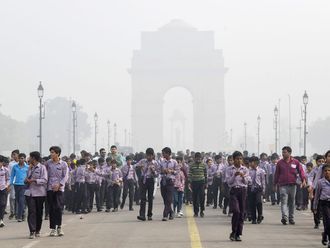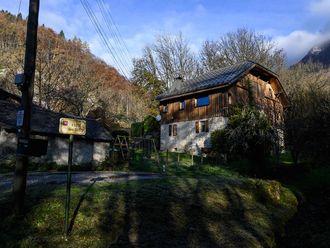New Delhi: India has deployed thousands of additional security forces and roped in about 16,000 “digital volunteers” to sanitise social media of inflammatory posts ahead of a crucial Supreme Court verdict on a disputed religious site.
Hindus and Muslims have for decades been bitterly divided over the 16th-century Babri mosque in Ayodhya, a city in the northern Uttar Pradesh state that Hindus believe is the birthplace of their deity Ram.
Tensions boiled over in 1992 when Hindu zealots destroyed the mosque, sparking religious violence that killed 2,000 people.
India’s top court is expected to hand down its ruling on competing claims to the site’s ownership before Chief Justice Ranjan Gogoi retires on November 17.
“Thousands of (additional) security personnel from different agencies have been deployed in and around Ayodhya. Additional vehicles, CCTV cameras, body cameras and drones too have been brought in,” Ayodhya police senior superintendent Ashish Tiwari told AFP Wednesday.
“The police is also making other efforts to ensure that things remain calm. We have enlisted around 16,000 digital volunteers from 1,600 villages in the region to help monitor and flag sensitive content on the social media.”
The monitors will report what they deem is inappropriate content to police, who could then try to track down the posters and demand that they delete their posts or messages.
Ayodhya - considered one of the holiest Hindu sites - is visited by religious pilgrims from all over India throughout the year.
Around one million pilgrims are expected to be there early next week for a bathing ritual in the Saryu river that flows in the region.
“We just have to stay alert and sensitive to the security of the visiting pilgrims,” Ayodhya district magistrate Anuj Kumar Jha told AFP.
“We are also keeping a very close watch on the social media to ensure there are no rumours or incitement.”
Authorities clamped down on movement and assembly of people in the region last month when the court was concluding its hearing into the dispute.
The district also banned firecrackers and drones, only allowing them to be used if permission is granted.
The Supreme Court has to decide on the appeals against a key 2010 verdict by the High Court which ruled that both groups should split the site, with Hindus granted the lion’s share.
Many Hindus believe the medieval mosque that stood there for 460 years was only built after the destruction of an earlier temple.
Prime Minister Narendra Modi’s Hindu nationalist BJP has campaigned on constructing a new temple on the site of the razed mosque for decades.












